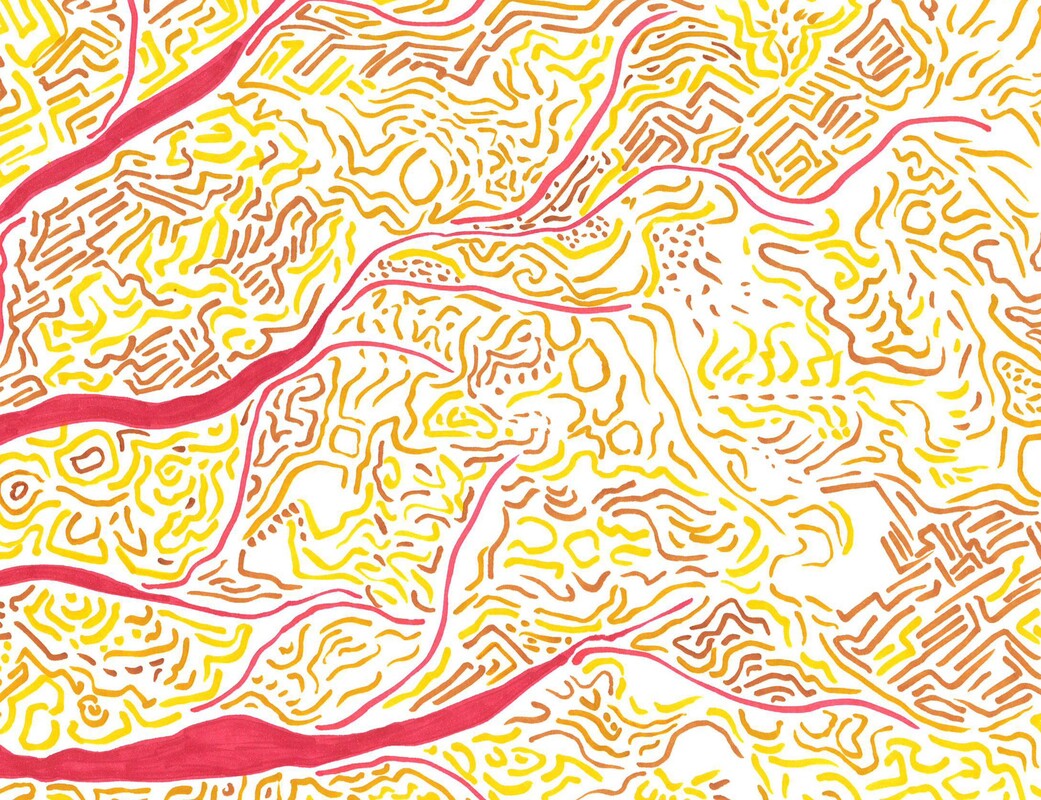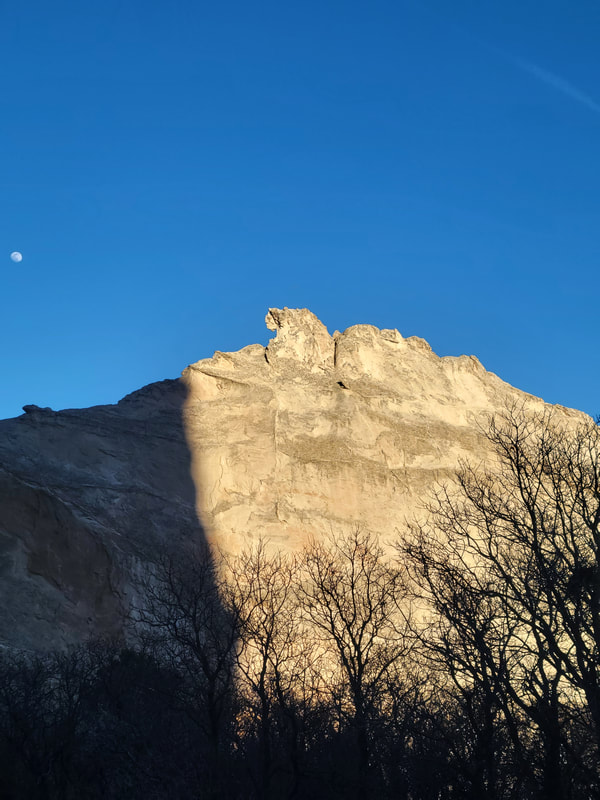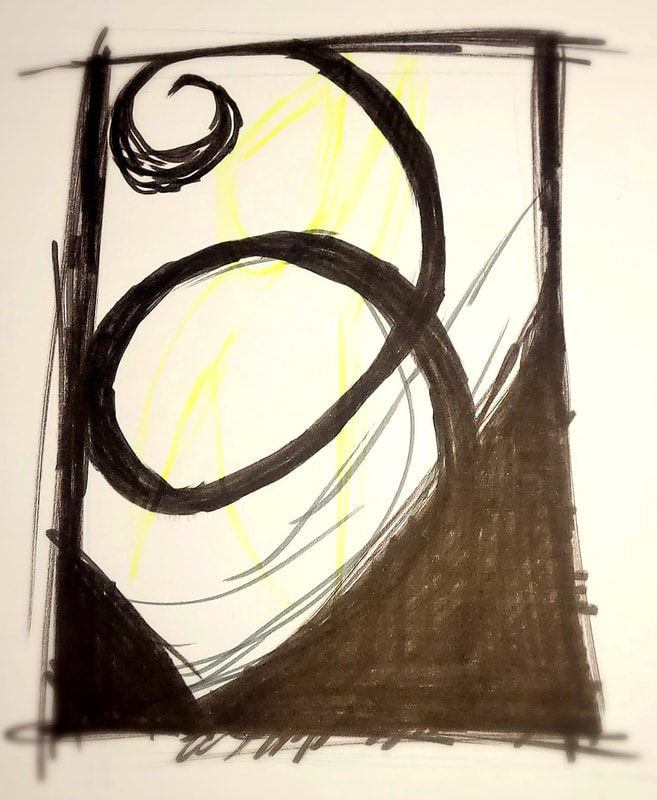|
“Stowing our delicatessen bundles in the car, we drove to the kosher butcher’s on East Long Street. Mr. Margolis was also a ritual slaughterer, and I once caught a scary glimpse of the bloody yard behind the store, where two of the three Margolis daughters sat on benches plucking the freshly killed chickens. It was usually Mrs. Margolis or one of the daughters who wrapped up all the chickens and carried them to our car. It was because she had a car that my mother took on the responsibility of buying not only her own chicken, but also the chickens for my grandmother and my aunts Fritzi and Ethel, who at that time were my only other married aunts in Columbus. . . . On the way home I would finish every last salty little olive, my treat, knowing my mother would spend the afternoon koshering the chicken and preparing the Shabbos meal that was the highlight of the family’s week, candles in their old Polish brass holders, a table full of relatives. But my own best time was the shopping for it with my mother.” —EBF My mother wrote this chapter among others while in her eighties, having attended a lifelong learning class in memoir writing, at Brandeis. She gave a copy each to me and my three younger sisters. She prefaced the gift by saying she’d written only about the “good stuff,” and promised that she’d write those “bad” chapters at a later point—the ones about my father’s bipolar disorder, alcoholism, abuse, and his untimely death at 44 years old; about our only brother, a 27 year old musician in the early eighties’ New York City scene, dying of a heroin overdose. But she never got around to writing the bad ones, perhaps because by the time she died, she’d made enough peace with the bad stuff to focus on the all reasons to celebrate; graduations, marriages, and births for example. She managed life as a 42 year old widow, who never married again, with an agile thrift and an impossible-to-refuse way of handing you a broom or a dishtowel. A brood of hens, we squawked sometimes, but mostly feathered our nest with plenty of hopefulness and opportunity. The most potent legacy in our family, the one epigenetically and indelibly sown into my being, she often recited to me like a poem: “You are the oldest daughter of an oldest daughter of an oldest daughter of an oldest daughter.” The oldest daughters wrought and bathed the bloods, separating chickens from their heads and cradling the newly crowned heads of babies from between the legs of their sisters, their daughters, and their nieces. They held in their competent hands all the intimacies of a life of service to the bodies and psyches of their families and communities. Gender role boundaries bent, in small hushed ways for these Ashkenazi oldest daughters. Even as a small girl, my maternal grandmother Celia sat in a back corner of her rabbi father’s den, where the scholarly men studied Talmud and other religious tracts and debated the godly and unholy ways of men. She later studied acting in New York City, stowing her washed menstrual rags over the bedsprings underneath her cot in the pantry of a cousin’s apartment. But even when the East West acting company had accepted her, she declined. Good Jewish girls bent to those lacerating definitions of ‘good.’ So she wrote news for the Jewish Chronicle and other newspapers, a more backstage occupation. And married and had children and continued her life of service. Ambitious women cannot hold themselves back completely. Those whispering threads of rebellion quilt together their skills and arts of service, the immense dependability of them. The alacrity and grace of weaving in and out of the lives of others—subtly propping, encouraging, and nurturing those others to their higher callings, and bathing their neglects and failures with narratives of sympathy, of counsel. Those rebellious threads needle into the substantive, into the bastions of male-dominated knowledge; attempt a higher degree, an outspokenness, or an expression of note in the sciences, humanities or arts; or champion the causes of the marginalized. As a girl with long hair, my grandmother, Celia, went to the outhouse one night with a candle that lit her hair on fire. Screams brought her father running with a blanket and it saved her life. But she was left with scarred and irregularly creped skin on the left side of her torso. When she visited, I’d watch her dress occasionally, her bra and slip already on. I held my breath and tried not to stare. One time she told me that her damaged body made her turn away from the acting career. But I didn’t believe it. I think the burn of a culture that depicted female actors as loose women, blanketed her; saved her reputation. *** Celia’s daughter, my mother, Ellen, made it into Vassar—a coup in the years of Jewish quotas. She’d longed to leave the pace of Ohio and come to New York, a train ride from Manhattan and culture. And what glory she felt to sit in classrooms, entirely comprised of women, and give voice to an alluring array of her own ideas and opinions. The dorms had their own dining rooms. The students had coop jobs, including coffee and tea service in the well-appointed living rooms after dinner, where Ellen would sit down at the piano and play ragtime and anything-at-all, by ear, having learned from one of her uncles. Her degree equipped her for anything, but she chose my charismatic father and Boston and children and all the moves, and all the ups and downs that followed. After his death she earned two master’s degrees and worked, first as an educator and then as a psychotherapist. But she called her work that of a mother, in preference to a career woman. After her death, tickets to the Museum of Fine Arts arrived in the mail. The Boston Globe on Sunday along with the local rag sat on the stoop in front. A notice from the library to return outstanding books landed in her mailbox along with flyers for upcoming courses. Still conscious a few days before she died, she said, “I thought I had a few more years.” It seemed to me like she died in the middle of a sentence, the rest of it yet to read. So many books left to peruse. So many exhibits to see, places to go, and family events to cheer. *** Culturally promoted, I’ve lived both ‘mother’ and ‘career,’ at the same time. What an extraordinary juxtaposition of place-holders and roles that tug hard, and always tug hard in counter-tension; never pulling in the same direction, and impossible to integrate. But clearly, most women, including me, cantilever toward the vast windows of career opportunity and remain tightly attached to the supporting beams of children and family. But I get paid for the broadband of my psychotherapy services, which includes services to those individuals for whom the state must subsidize. I make my own money. I create what I want with it. *** My oldest daughter, Lexa, forged her way into the world of book publishing, always finding that edge, that tipping point when the telling of stories shifts from one compelling set of forces to another. And inventing processes for development, and for cooperative brainstorming with other women lit on fire, by the prospects and surprises of birthing new narratives out into the world. She and her daughter, now five, read big books every night, the few pages adding up and adding up like the nights they cozy up together, advancing their own mother-daughter story. We will tell her one day that in some parts of the world, women’s faces and voices remain hidden beneath garments and cooped up in courtyards surrounded by airless walls they may not breach without a man’s escort. In Afghanistan, women who’ve killed their abusive husbands relish newfound freedom in a women’s prison, some with their children. They’ve bedecked the crude floors with colorful rugs, and share meals with friends. Will the women’s ambition for freedom look, forever, like bars through which the daylight belongs to them without punishment? Is not even the pandemic less atrocious? Isn’t this virus of equal opportunity less vicious than the inhumanity inflicted on so many daughters, mothers, and sisters? I feel privileged to say to my daughter, what she will pass along to her daughter, “You are the oldest daughter, of an oldest daughter, of an oldest daughter . . .” Lexa’s little one, Minna, likes olives as a treat. We all do. The salt, the slick oil, and the dense meat clinging to its pit. AUTHOR
LISA FRIEDLANDER is a psychotherapist and essayist who quilts together ideas, characters, events, sensory awakenings. Recent work has or will appear in Shark Reef, The Forge, IO Literary Review, Adanna Literary Review, Ponder Review, Wild Roof, Tiny Spoon, and Turnpike. ILLUSTRATOR SAMIR KNEGO is a multidisciplinary artist living in North Carolina with a bright green wheelchair and a little black dog. He edits for Decolonial Passage and has work in The Fieldstone Review, Wordgathering, Press Pause Press, and elsewhere. Find him on twitter/instagram @SamirKnego or at samirknego.wixsite.com/here.
1 Comment
To My Grandmother: The Savoy Ballroom Dancer
Everyone said you were the best dancer at the club and I wonder did you dance with a spark of joy that flowed through your feet and your legs? Did you dance like nothing could stop your hips from bringing life into the room? Did you sway in some soldier’s arms and rest your head on his chest while you two stepped and slow danced him back from the front? Did you lindy hop with a stranger who twirled you and turned your world upside down but never partnered with you for more than one song? Did you dance like the world was ending and you were its last graceful motion ? I heard that you swayed alone in the middle of the club, eyes shut, Billie’s song on your lips, the spark inside traveling the length of you, lighting the fire and fueling the dance. Kingdom We double dutched in the middle of the street turning flying saucers with our hands drumming beats with our feet Mamas called us home for peanut butter and jelly lunches winos held up the corners with brown paper bags and wobbly legs Mr. Murray came cruising in his Cadillac, picking up numbers, handing out winnings to the lucky women and men who’d had the good fortune to play their weight, their phone numbers or their dreams He gave us nickels For Hershey bars and Mary Janes we piled into the car Braids bobbing with excitement Our hands surfing the city wind and headed for Freedom land where we could be anybody and do anything I was the fat lady in the mirror Jackie was the clown with no head Octavia was a pirate with a sword arm Robbie was three feet tall Back home we seesawed and swung as high as the moon jacks and balls spilled over on the stoops we scooped them up like stars and planets in our neighborhood universe We learned back then and we haven’t forgotten that we were once little girl gods who owned the kingdom of Harlem. About the Author: Leslie Dianne is a poet, novelist, screenwriter, playwright and performer whose work has been acclaimed internationally in places such as the Harrogate Fringe Festival in Great Britain, The International Arts Festival in Tuscany, Italy and at La Mama in New York City. Her stage plays have been produced in NYC at The American Theater of Actors, The Raw Space, The Puerto Rican Traveling Theater and The Lamb's Theater. She holds a BA in French Literature from CUNY and her poems have appeared in Noctivant Press, The Wild Word, Trouvaille Review, Moida, Sparks of Calliope and The Elevation Review and are forthcoming in Whimsical Poet and Boston Accent Lit. Her poetry was recently nominated for a Pushcart Prize. |
Authorcollective.aporia Archives
May 2023
Categories
All
© 2019-2021 collective.aporia
|




 RSS Feed
RSS Feed
